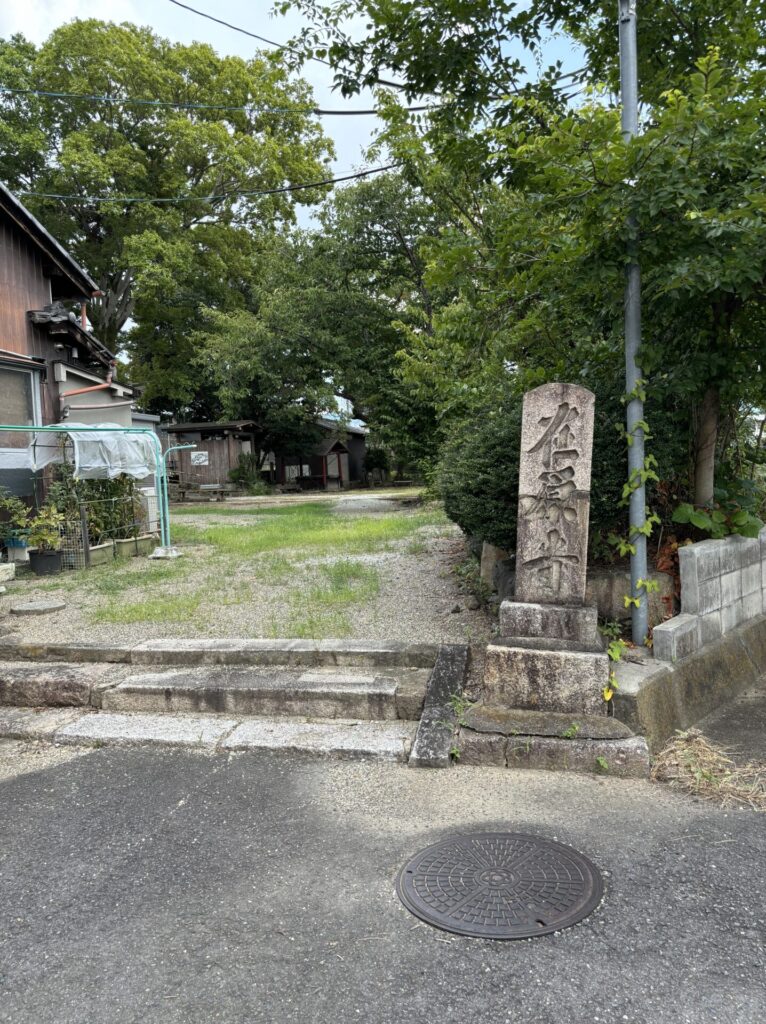
奈良県天理市にある、在原業平を祀った神社。在原業平は、平安時代を代表する歌人、平安時代で一二を争う色男、『伊勢物語』の主人公です。情熱的な和歌が特徴です。
The shrine in Tenri City, Nara Prefecture, enshrines Ariwara no Narihira. Narihira was a prominent poet of the Heian period, one of the most handsome men of his time, and the protagonist of the Ise Monogatari (The Tales of Ise). His passionate waka poems are a characteristic feature of his legacy.
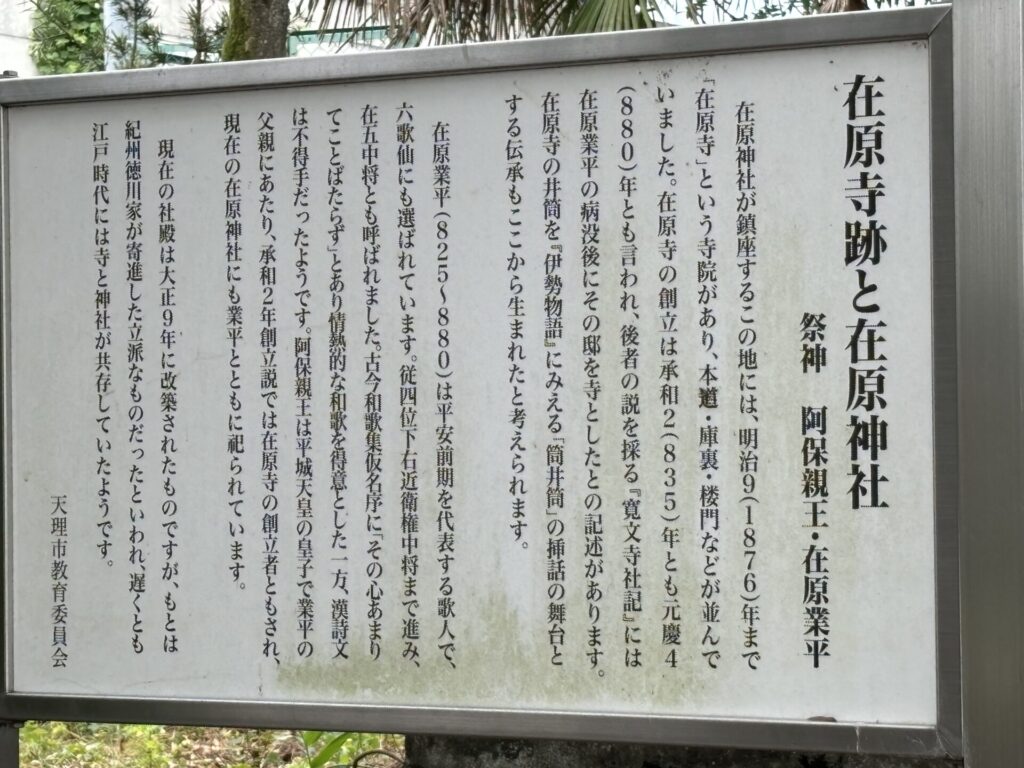
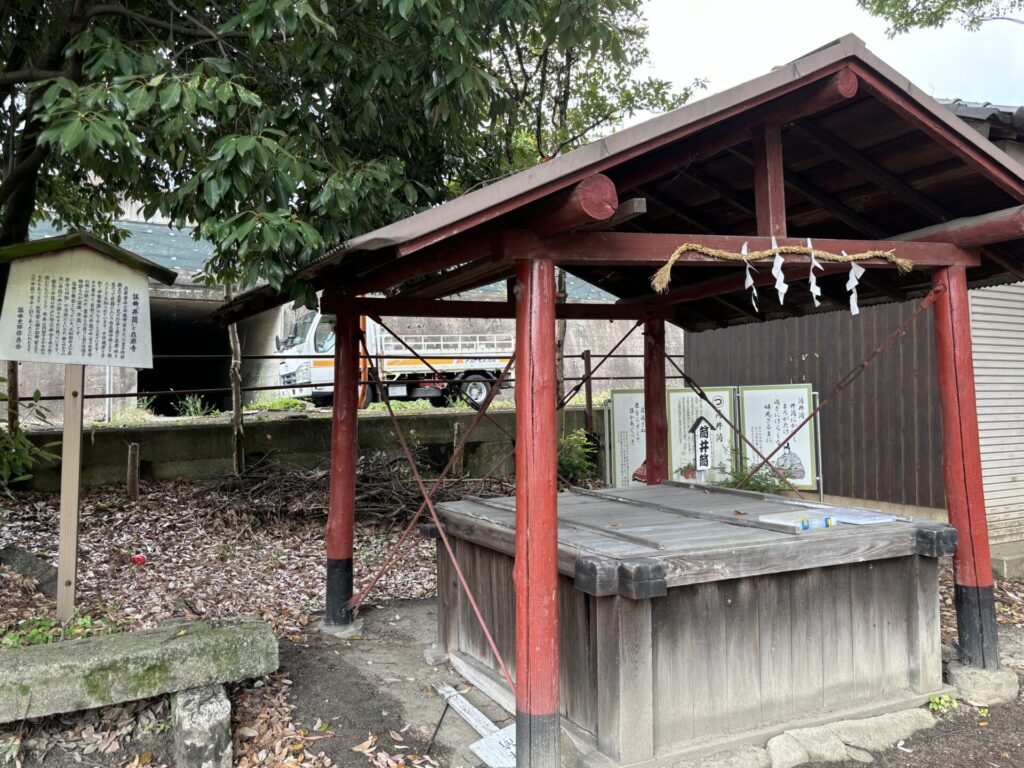
この神社には、『伊勢物語』に登場する筒井筒の井戸があります。
This shrine has the well called “Tsutsui-dutsu,” which appears in the Ise Monogatari.
筒井筒の物語は、幼馴染の恋の物語です。昔、幼馴染の少年と少女がいて、幼い頃はよく遊んでいましたが、大人になってからはお互い恥ずかしがって遊ばなくなりました。ですが、どちらも大人になったらこの幼馴染と結婚しようと思っていました。ある日、少年は少女に歌を贈りました。
The story of Tsutsui-dutsu is a tale of childhood sweethearts. Long ago, there was a boy and a girl who were childhood friends and played together often. However, as they grew older, they became too shy to play with each other. Despite this, both of them secretly hoped to marry their childhood friend once they became adults. One day, the boy sent a poem to the girl.
筒井筒井筒にかけしまろがたけ過ぎにけらしな妹見ざるまに
「筒井筒の井戸で測った私の身長は高くなった、あなたに会わないうちに」という意味ですが、「大人になったから結婚しよう」という意味がこめられていたようです。少女も少年に歌を贈りました。
The poem means, “The height I had measured at the Tsutsui-dutsu well when we were children, has grown taller, since the last time I saw you.” However, it also carries the deeper meaning of “Now that we are adults, let’s get married.” In response, the girl also sent a poem to the boy.
比べこし振り分け髪も肩過ぎぬ君ならずしてたれかあぐべき
「長さを比べてきた私の髪も肩を過ぎた。あなたのためではなくて、誰のために髪を結い上げて大人になりましょうか。」という歌を送り、少年と少女は結婚しました。
She sent a poem saying, “My hair, which we used to compare in length, has now grown past my shoulders. If not for you, for whom shall I tie up my hair and become an adult?” In the end, the boy and the girl got married.
さて、結婚した二人ですが、妻の親が亡くなり経済的に苦しくなると、夫は浮気を始め、高安の裕福な女のもとに通うようになりました。ですが、妻は怒らず何事もなかったかのように振る舞っていたため、夫は妻も浮気をしているのではないかと疑い始めます。そこで夫は、高安に行くふりをして家の外に隠れ、妻の様子を見ていました。すると、妻は化粧を始め、外を眺めながら歌を詠みました。
Now, after the couple got married, the wife’s parents passed away, and they fell into financial hardship. In response, the husband began to have an affair, frequently visiting a wealthy woman in Takayasu. However, the wife did not get angry and acted as if nothing was wrong. This led the husband to suspect that perhaps his wife was also having an affair. So, he pretended to go to Takayasu, but instead hid outside the house to observe her. There, he saw his wife start to apply makeup, and while gazing outside, she composed a poem.
風吹けば沖つ白波たつた山夜半には君がひとり越ゆらむ
「風が吹くと沖の白波が立つという竜田山を、夜中に君が一人で越えているのだろうか」浮気相手に会うために夜中に山を越えていく夫を心配する内容の歌です。そこまで自分を思ってくれる妻の気持ちに感動した夫は、それから浮気をやめました。
The poem she composed was:
“Is it you who, in the middle of the night, crosses Tatsuta Mountain, where the waves rise when the wind blows, to meet your lover?”
This poem expressed the wife’s concern for her husband, who was crossing the dangerous mountain at night to meet his mistress. Touched by the deep care and feelings his wife showed for him, the husband was moved and decided to stop his affair from that point onward.
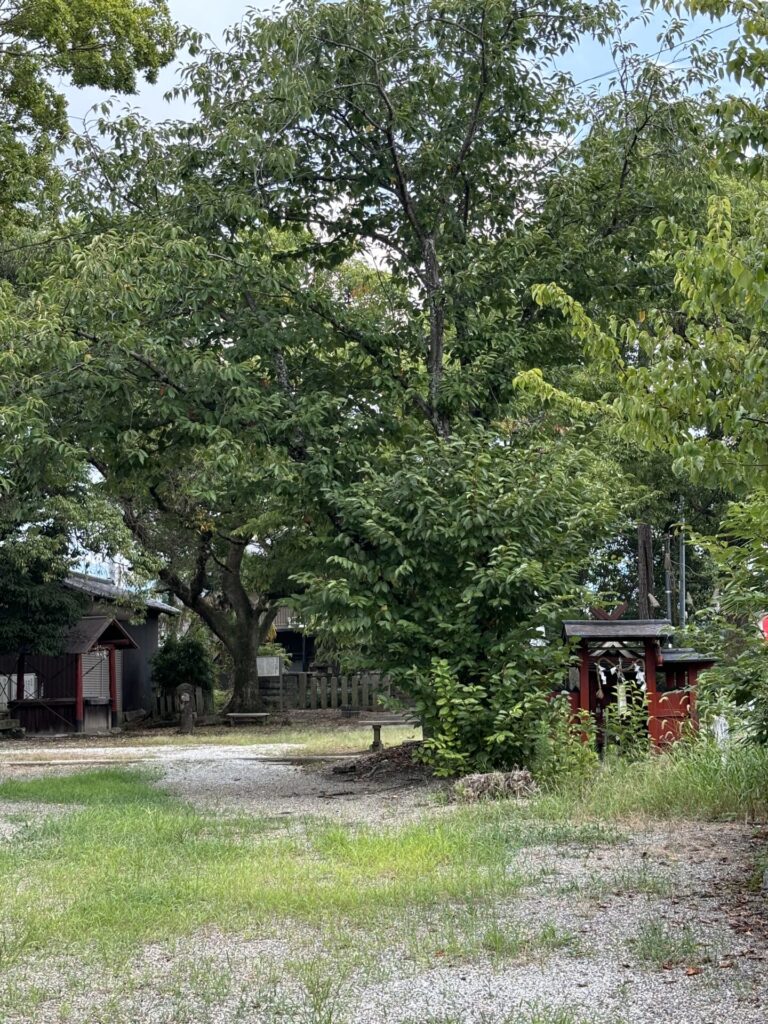
物語に出てくる妻を祀ったのが、右の社です。
The shrine on the right enshrines the wife who appears in the story.
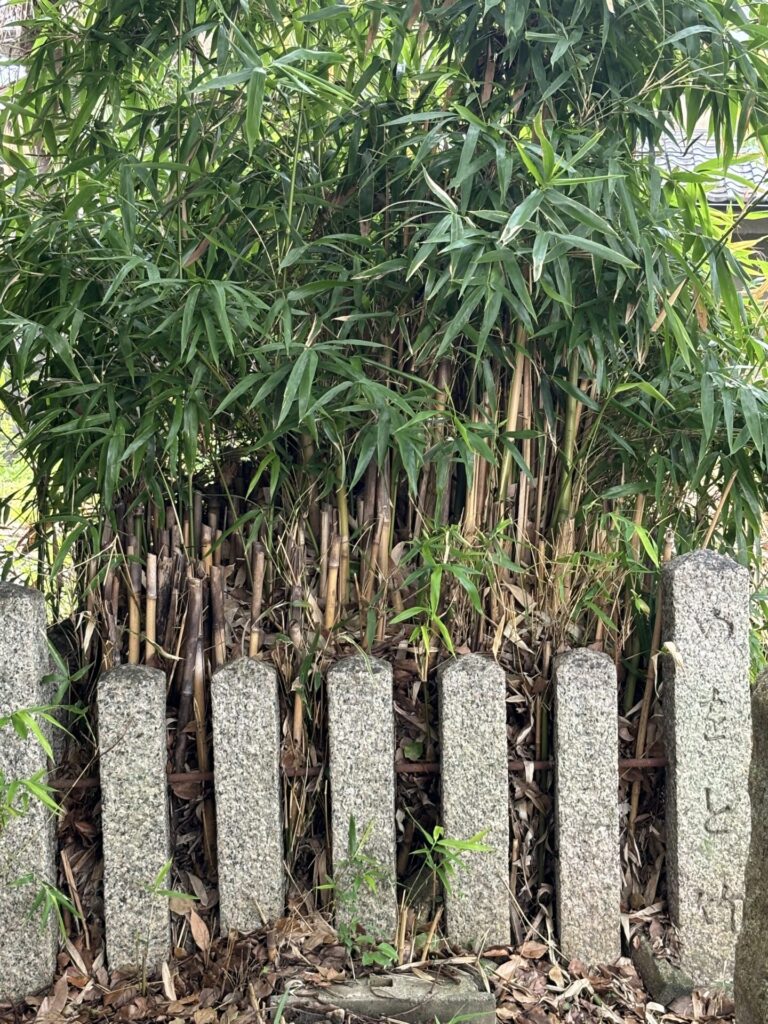
めおと竹。恋愛成就にご利益がありそうです。
“Meoto Bamboo.” It seems to bring blessings for the fulfillment of love.
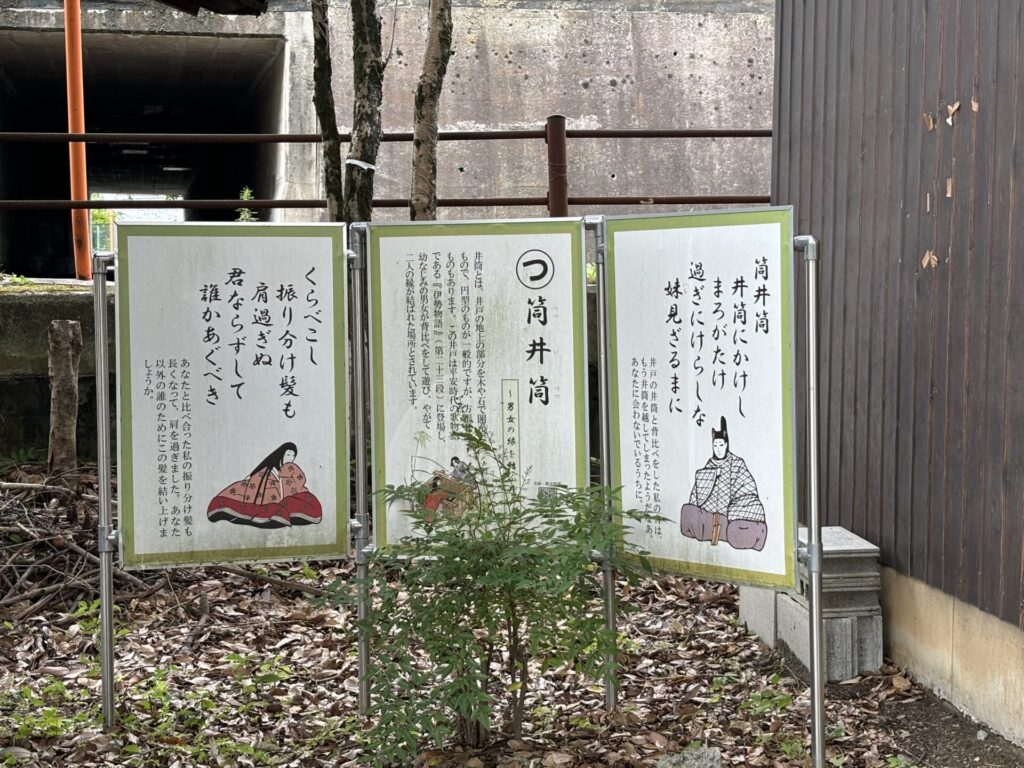

昔は大きな寺で、紀州徳川家から寄進された建物もあったそうです。
In the past, it was a large temple, and it is said that buildings donated by the Kishu Tokugawa family were also here.
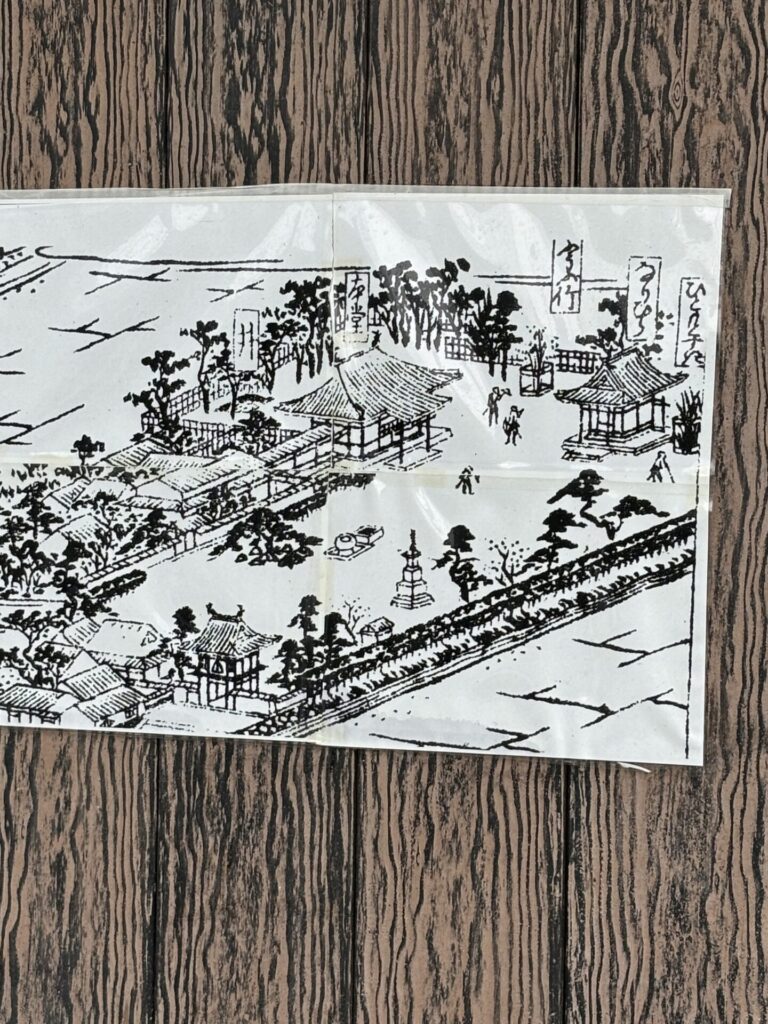
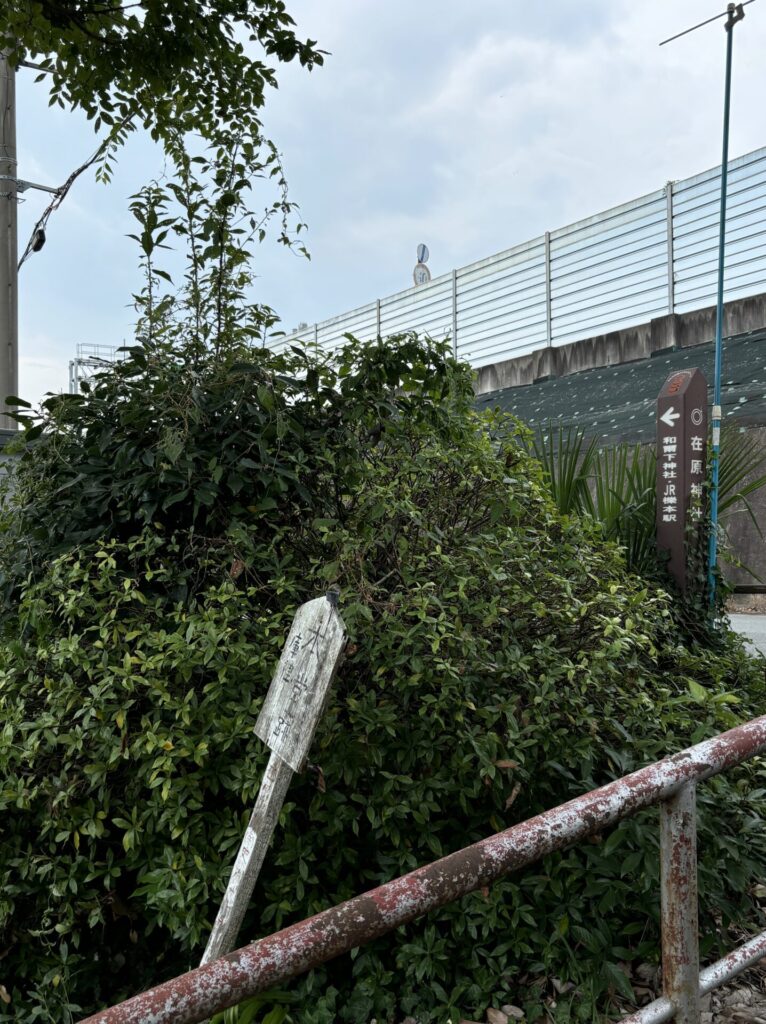


コメント